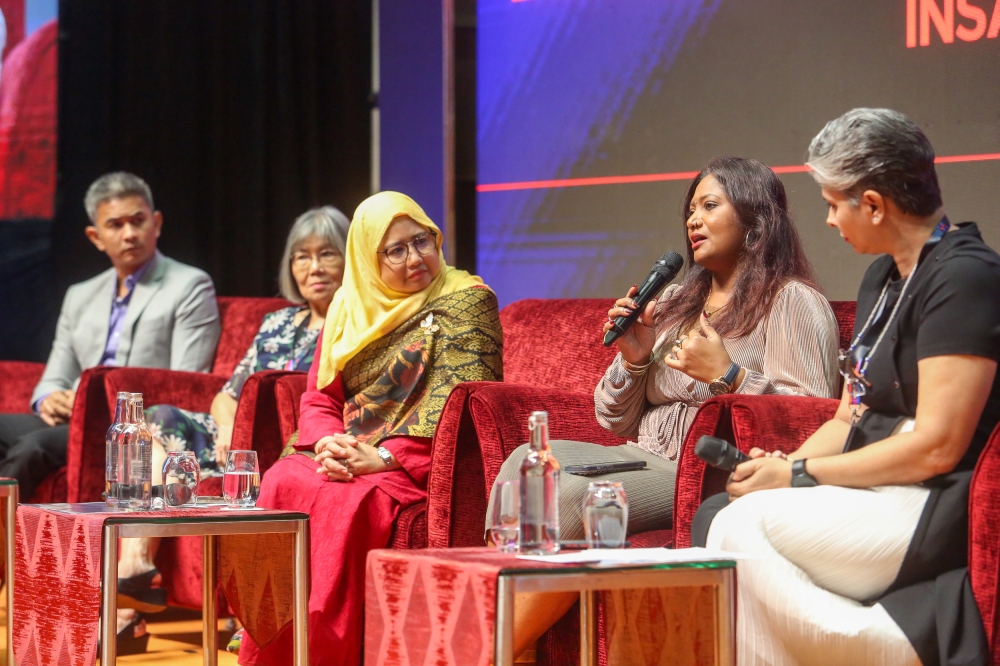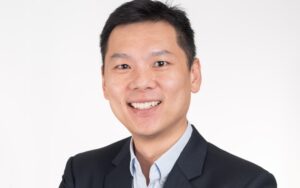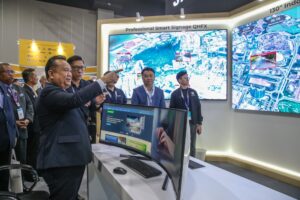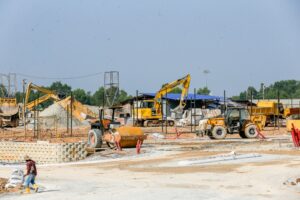KUALA LUMPUR, Oct 16 — If you are caring for a family member, look out for your own wellbeing and seek help if you need it.
Caregiver Banu Reka Michael said it is very important for caregivers to take care of their own mental health, and that they have to be stable mentally and emotionally.
“And you must always look out for yourself first. Because if you are not right, you can’t take care of the ones around you,” she said during a forum titled Fireside Chat: Mental & Emotional Strength —‘Caring for Yourself While You Care for Others’ at the recent Selangor International Care Summit 2025.
Banu Reka herself has cared for her second child who has cerebral palsy for the last 16 years with her two other children’s help and without paid carers, and also cares for her two parents.
“Many caregivers don’t know where to go for help, whether it’s respite care, emotional care. The services actually exist, there are plentiful services we know of, but the information just doesn’t reach effectively.
“So I just feel that, culturally, many caregivers, especially women, they carry the silent belief that they must endure quietly. They rarely admit exhaustion,” she said, adding that such caregivers view admitting being exhausted as a weakness.
“They don’t want to show their weakness, so over time this eventually leads to burnout and isolation,” she said.
“This narrative should change, the caregiver should be seen as partners in the ecosystem – not just service providers, not just doing this on their own. They should be well-supported with communities,” she added.
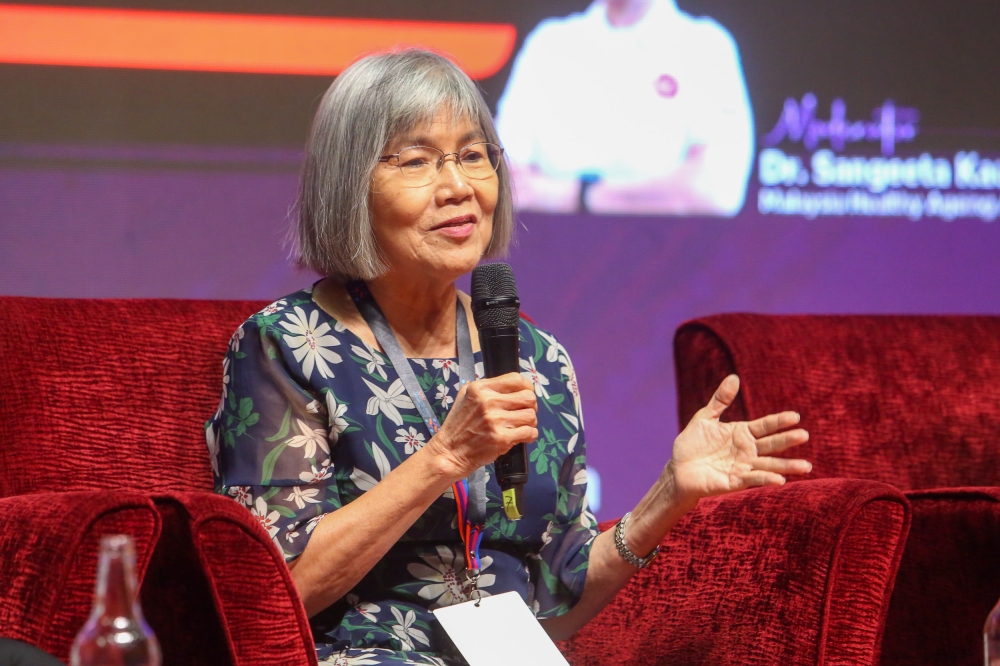
Seniors Aloud founder Lily Fu, who returned to university to study gerontology to take better care of her mother and to share knowledge with other caregivers, spoke at the at the Selangor International Care Summit in KLCC Convention Centre. Oct 09, 2025. — Picture by Choo Choy May
Social connections and family as support
Gerontologist Lily Fu, who was a caregiver to her mother who had Alzheimer’s disease for 11 years said carers may face more challenges as people live longer now.
She gave the real-life example of a woman in her 80s who was taking care of her husband in his 90s.
“When I was in my early 70s, I was already taking care of my mum in her early 90s. So this is the situation today, we have to find something. Because a senior citizen in that age group cannot —they don’t have strength to help lift up someone who is in a wheelchair for example.
“So there’s lots, lots of challenges for us caregivers, under a lot of stress. So what can we do about it?” said the 77-year-old at the same forum.
In 2008, she started the SeniorsAloud community group for older persons by herself: “And then it grew and it grew, and that goes to show that our country really needs community effort, community support, not just family.”
Later in the same session, she said family support is important, and that she had even asked her grandchildren to help care for her mother for a few hours when she needed a break.
“But personally, I find when you have social connections, when you have community, when you have friends and even neighbours, they help a lot to relieve some of the stress,” she said.
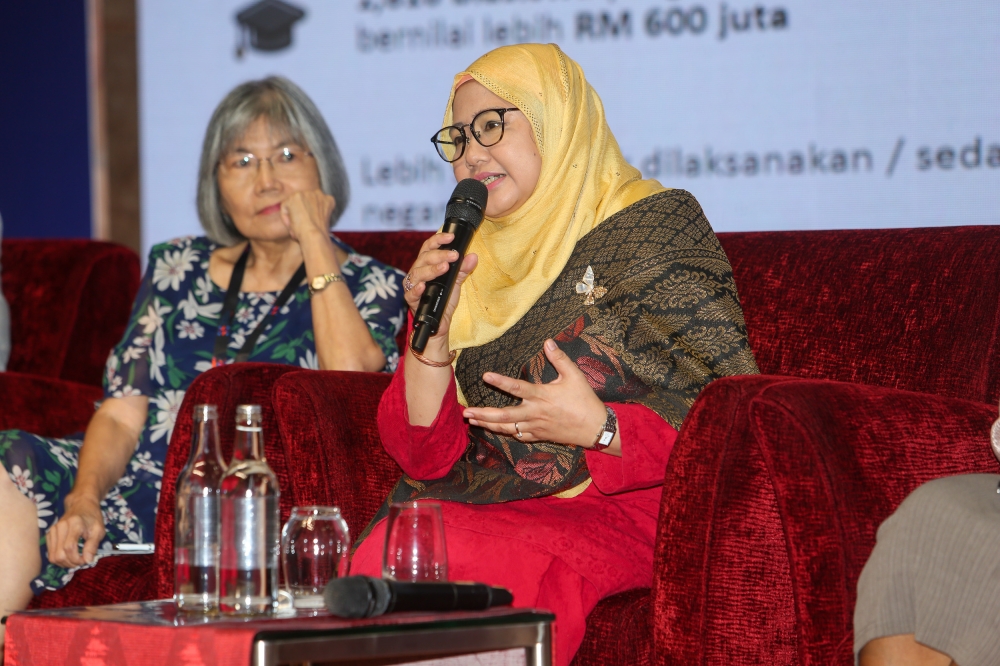
At the Selangor International Care Summit, Yayasan Hasanah managing director Siti Kamariah Ahmad Subki said family members could provide feedback to public spaces, such as mosques, on ensuring facilities are accessible for older people. — Picture by Choo Choy May
Safe and accessible public spaces to help caregivers and those being cared
Yayasan Hasanah managing director Siti Kamariah Ahmad Subki noted that one in every four Malaysians now are caregivers, including those caring for their parents or siblings.
“At Yayasan Hasanah, we also learnt that caregivers don’t only need material or financial support, but they actually need a safe space to rest, breathe and feel seen more,” she said at the same forum.
She said there was a need to ensure public spaces are accessible for both caregivers and those who are being cared for, such as parks which have ramps and are wheelchair-friendly.
For example, she said parks designed under Think City in Penang and Johor had such aspects.
She also gave examples such as designing places of worship to be accessible, including by not placing the prayer hall at higher levels.
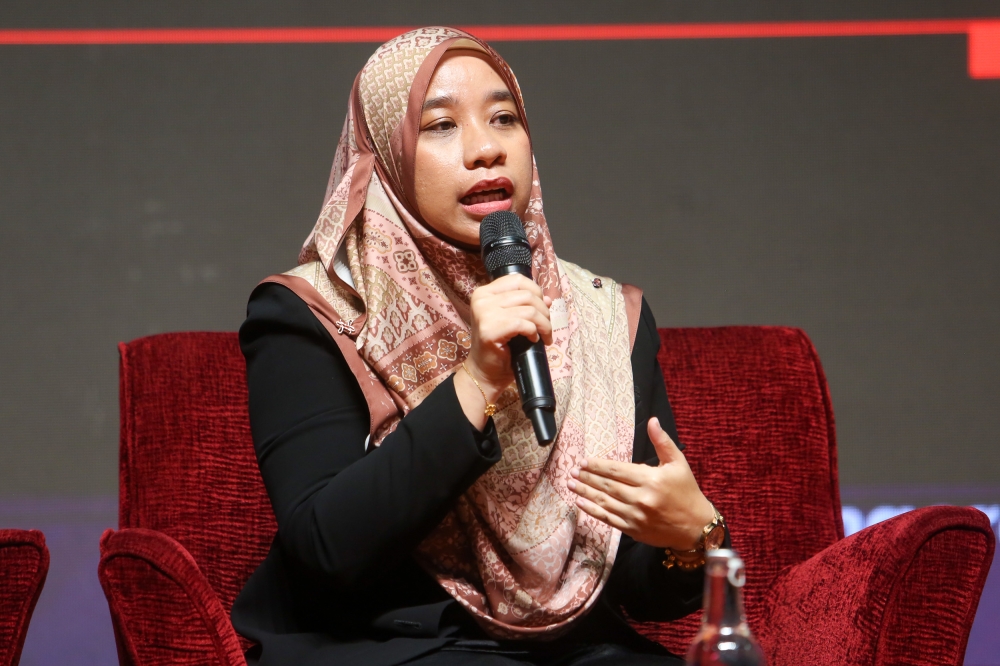
Nurul Ezzati Mohd Nasir, founder of social enterprise Teman Malaysia, said the service can provide companions who can ensure older people are ready for hospital appointments and have the necessary documents, and help take note of what doctors said. — Picture by Choo Choy May
Paid companions as support for older people
Nurul Ezzati Mohd Nasir, founder of social enterprise Teman Malaysia which provides paid care companionship to older people, said the service also aims to give caregivers space to take a break.
“If you don’t take care of yourself, you won’t be able to take care of others.
“So you have to take that time to recharge yourself, to realign your focus. ‘Why I’m doing this? I’m doing this out of love, but I also have to take time for myself’,” she said during a separate Selangor International Care Summit session titled We See You: State, NGO and Digital Tools for Caregivers.
Unlike other services such as domestic helpers for older people who are sick, Teman Malaysia fills in the gap by helping older people who are still healthy to stay active socially, she said.
For example, Teman can help children who are not confident enough to let their parents go out by themselves for shopping or to meet with friends, such as when the latter do not know how to use navigational tools.
She said Teman also offers the service of accompanying older parents to hospital appointments, and can act as a “bridge” to convey what doctors said to the children who were unable to go along.
Acknowledging that even middle-income families might be unable to afford long-term aged care for their parents, she said Teman could help by giving the weekend off for family members who have been providing care for the rest of the week.
She stressed the importance of emotional validation, and said some potential customers feel relief after sharing their challenges and just by knowing that Teman is an available option.
With 80 per cent of caregivers in Malaysia being informal carers, she said caregivers may also generate income by joining Teman as a paid care companion known as “Temanion”.
